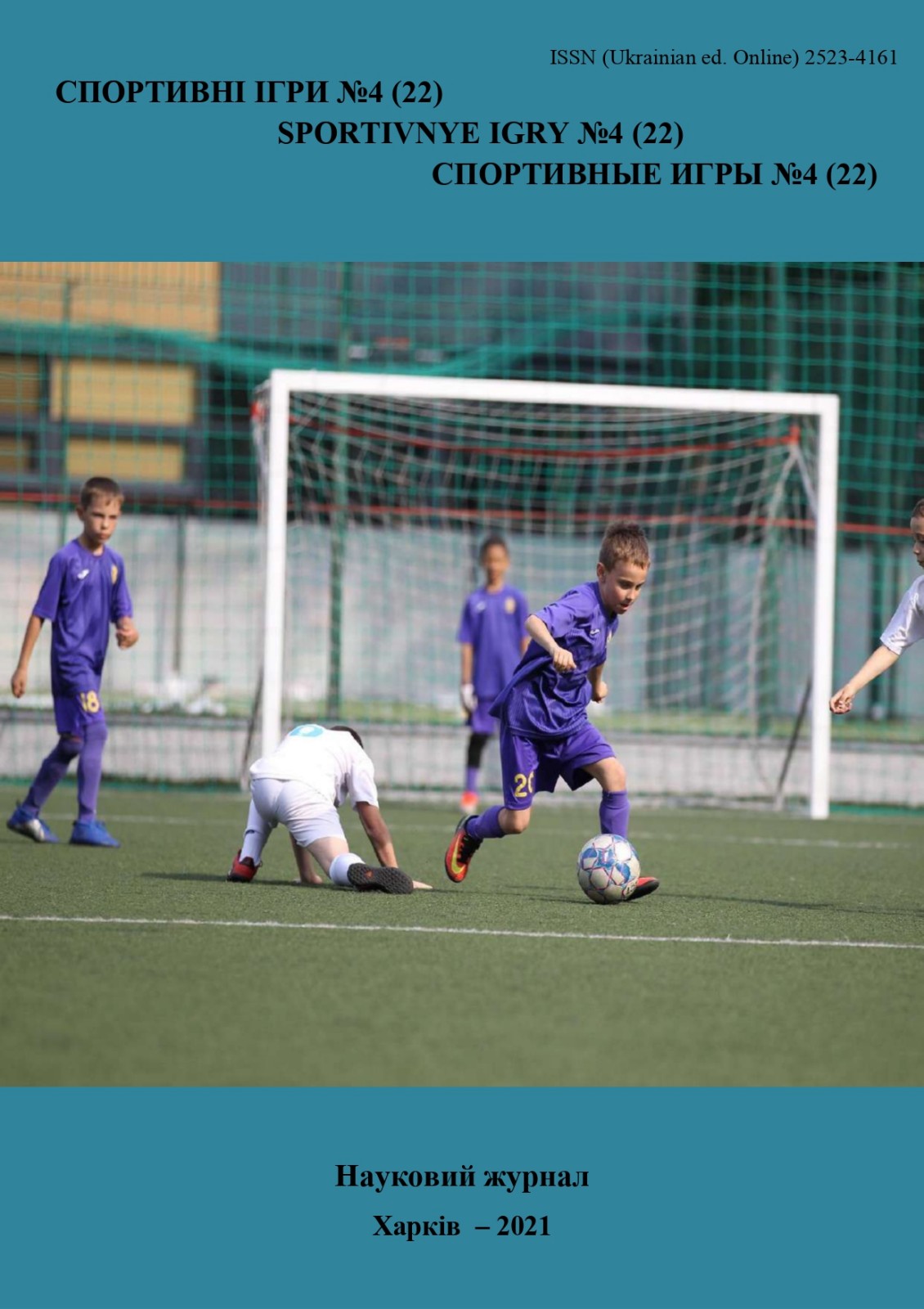Management’s development of athletes with disabilities in sedentary volleyball sport branch
DOI:
https://doi.org/10.15391/si.2021-4.14Keywords:
Management, Athletes Disabilities, Sedentary VolleyballAbstract
Abstract. This work aims to determine the management of athletes with disabilities in
sedentary volleyball. The research method used is an interpretive study research on the Coaching
Activities of Athletes with Disabilities in the Indonesian National Pelatnas Volleyball Sports Branch
in Surakarta. The population of this study were athletes, coaches and administrators of the
Indonesian NPC. The data collection techniques used by the researcher are active observation,
interviews, and documentation analysis. In this study, researchers used two triangulation
techniques, namely data triangulation and method triangulation. The data validity technique used
triangulation technique. Data analysis was carried out in four stages, namely: the data collection
stage, the data reduction stage, the data presentation stage, and the conclusion drawing stage. The
results showed that the athletes in the sedentary volleyball sport were quite good. Communication
between athletes, administrators and coaches is very good because they always approach each
other emotionally. Coaches in coaching athletes with disabilities in the Indonesian sedentary
volleyball sport must have a minimum national license. The condition of good facilities and
infrastructure will provide convenience in the process of coaching athletes with disabilities in
sedentary volleyball. The funding system for the coaching of athletes with disabilities in sedentary
volleyball goes from the Ministry of Youth and Sports as a whole with the financial system set for
coaching athletes with disabilities in sedentary volleyball from the APBN budget. The
implementation of the training method for coaching athletes with disabilities in the sedentary
volleyball sport is well programmed. This can be seen from the preparation of a written training
program, the training schedule is in accordance with the national level training schedule, the
division of short-term periodization, medium-term periodization, and long-term periodization.
References
Ahmadi, S., Marszałek, J., Gutierrez, G.L., & Uchida, M.C. (2020). Sedentary volleyball players. Kinesiology, no 52(2), 169–177. https://doi.org/10.26582/k.52.2.3
Blauwet, C., & Willick, S.E. (2012). The paralympic movement: Using sports to promote health,disability rights, and social integration for athletes with disabilities. PM and R, no 4(11), 851-856. https://doi.org/10.1016/j.pmrj.2012.08.015
Blumenstein, B., & Orbach, I. (2015). Psychological preparation for paralympic athletes: A preliminary study. Adapted Physical Activity Quarterly, no 32(3), 241-255.
https://doi.org/10.1123/APAQ.2014-0235
Dehghansai, N., Headrick, J., Renshaw, I., Pinder, R. A., & Barris, S. (2020). Olympic and Paralympic coach perspectives on effective skill acquisition support and coach development. Sport, Education and Society, no 25(6), 667-680. https://doi.org/10.1080/13573322.2019.1631784
DePauw, K.P. (2016). Research on Sport for Athletes with Disabilities. Adapted Physical Activity Quarterly, no 3(4), 292-299. https://doi.org/10.1123/apaq.3.4.292
Dieffenbach, K.D., & Statler, T.A. (2012). More similar than different: The psychological environment of paralympic sport. Journal of Sport Psychology in Action, no 3(2), 109-118. https://doi.org/10.1080/21520704.2012.683322
Dijkstra, H.P., Pollock, N., Chakraverty, R., & Alonso, J.M. (2014). Managing the health of the elite athlete: A new integrated performance health management and coaching model. British Journal of Sports Medicine, no 48(7), 523-531. https://doi.org/10.1136/bjsports-2013-093222
Fabiano, K., Hidayatullah, M.F., & Purnama, S.K. (2021). Implementation evaluation in paralympic sports achievement development. International Journal of Social Sciences, no 4(1), 15-27. https://doi.org/10.31295/ijss.v4n1.410
Fitzgerald, H. (2012). Paralympic Athletes and “Knowing Disability.” International Journal of Disability, Development and Education, no 59(3), 243-255.
https://doi.org/10.1080/1034912X.2012.697721
Hancock, D.J., Rymal, A.M., Ste-Marie, D.M., Varnes, J.R., Stellefson, M.L., Janelle, C.M., Dorman, S.M., Dodd, V., Miller, M. D., Crawford, J. J., Gayman, A. M., Tracey, J., Brown, H. E., Lafferty, M. E., Triggs, C., Esfandiari, A., Broshek, D. K., Freeman, J. R., Asif, I. M., …
Pedrosa, I. (2014). The Role of Gender in Educational Contexts and Outcomes. Psychology of Sport and Exercise, no 13(3), 48-55. https://doi.org/10.1016/j.pmr.2005.03.002
Hanrahan, S.J. (2015). Psychological Skills Training for Athletes With Disabilities. Australian Psychologist, no 50(2), 102-105. https://doi.org/10.1111/ap.12083
Kardiyanto, D.W. (2017). The Evaluation of Indonesia Paralympic Coaching. European Journal of Special Needs Education, no 2(4), 103-110. https://doi.org/10.5281/zenodo.891047
Macdonald, D. J., Beck, K., Erickson, K., & Côté, J. (2016). Understanding Sources of Knowledge for Coaches of Athletes with Intellectual Disabilities. Journal of Applied Research in Intellectual Disabilities, no 29(3), 242-249. https://doi.org/10.1111/jar.12174
McLoughlin, G., Fecske, C. W., Castaneda, Y., Gwin, C., & Graber, K. (2017). Sport participation for elite athletes with physical disabilities: Motivations, barriers, and facilitators. Adapted Physical Activity Quarterly, no 34(4), 421-441. https://doi.org/10.1123/apaq.2016-0127
Molik, B., Morgulec-Adamowicz, N., Marszałek, J., Kosmol, A., Rutkowska, I., Jakubicka, A., Kaliszewska, E., Kozłowski, R., Kurowska, M., Ploch, E., Mustafins, P., & Gómez, M. Á. (2017). Evaluation of game performance in elite male sedentary volleyball players. Adapted Physical Activity Quarterly, no 34(2), 104-124. https://doi.org/10.1123/apaq.2015-0028
Primeau, L., Akinsanya, F., & Apostolopoulos, N. (2015). On coaching the paralympic athlete. New Studies in Athletics, no 30(4), 64–74.
Yüksel, M.F., & Sevindi, T. (2018). Physical fitness profiles of sedentary volleyball players of the Turkish national team. Universal Journal of Educational Research, no 6(3), 556-561. https://doi.org/10.13189/ujer.2018.060318
Zuhriyah, A., Kristiyanto, A., & Purnama, S. K. (2020). Management of national paralympic committee indonesia (NPCI) of high-performance sport in klaten regency. International Journal of Psychosocial Rehabilitation, no 24(8), 7416-7425. https://doi.org/10.37200/IJPR/V24I8/PR280756













